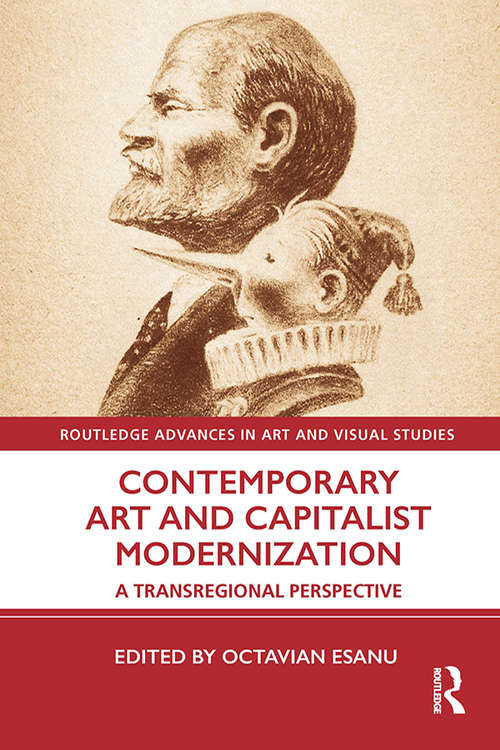Contemporary Art and Capitalist Modernization: A Transregional Perspective (Routledge Advances in Art and Visual Studies)
By:
Sign Up Now!
Already a Member? Log In
You must be logged into Bookshare to access this title.
Learn about membership options,
or view our freely available titles.
- Synopsis
- This book addresses the art historical category of "contemporary art" from a transregional perspective, but unlike other volumes of its kind, it focuses in on non-Western instantiations of "the contemporary." The book concerns itself with the historical conditions in which a radically new mode of artistic production, distribution, and consumption – called "contemporary art" – emerged in some countries of Eastern Europe, the post-Soviet republics of the USSR, India, Latin America, and the Middle East, following both local and broader sociopolitical processes of modernization and neoliberalization. Its main argument is that one cannot fully engage with the idea of the "global contemporary" without also paying careful attention to the particular, local, and/or national symptoms of the contemporary condition. Part I is methodological and theoretical in scope, while Part II is historical and documentary. For the latter, a number of case studies address the emergence of the category "contemporary art" in the context of Lebanon, Egypt, India, Hungary, Slovenia, Croatia, Bosnia and Herzegovina, Armenia, and Moldova. The book will be of interest to scholars working in art history, globalism, cultural studies, and postcolonial studies.
- Copyright:
- 2021
Book Details
- Book Quality:
- Publisher Quality
- Book Size:
- 288 Pages
- ISBN-13:
- 9781000180237
- Related ISBNs:
- 9781003044345, 9780367550943, 9780367490737
- Publisher:
- Taylor and Francis
- Date of Addition:
- 10/09/20
- Copyrighted By:
- Taylor
- Adult content:
- No
- Language:
- English
- Has Image Descriptions:
- No
- Categories:
- History, Nonfiction, Art and Architecture
- Submitted By:
- Bookshare Staff
- Usage Restrictions:
- This is a copyrighted book.
- Edited by:
- Octavian Esanu
